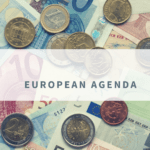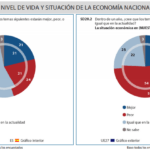The informal economy is a global and pervasive phenomenon. Some 60 percent of the world’s population participates in the informal sector. Although mostly prevalent in emerging and developing economies, it is also an important part of advanced economies.
The informal economy embraces professions as diverse as minibus drivers in Africa, the market stands in Latin America, and the hawkers found at traffic lights all over the world. In advanced economies, examples can range from gig and construction workers, through domestic workers, to registered firms that engage in informal activities.
The International Labor Organization estimates that about 2 billion workers, or over 60 percent of the world’s adult labor force, operate in the informal sector–at least part time.
- The informal economy is difficult to measure.
This is because activities within it cannot be directly observed, and for the most part, participants in the informal economy do not want to be accounted for.
But it is important to try and measure the size of the informal economy because of its significance, and also because it employs some of the world’s most vulnerable people.
Informality can be measured in two different ways. The direct approach is based on surveys, voluntary replies, and other compliance methods to directly measure the number of informal workers and firms.
Indirect methods focus on certain characteristics, or proxies, that can be observed and are related to informal economic activity. Examples of proxies include electricity consumption, night-light satellite data, and cash in circulation. Using these methods, the share of the informal economy in total output can be measured.
- The COVID-19 pandemic hit informal workers particularly hard, especially women.
This uneven impact of the pandemic is because the majority of informal workers are employed in contact-intensive sectors (such as domestic workers, market vendors, and taxi drivers) and in insecure jobs that do not offer paid leave or the ability to work from home.
Close to 95 million more people—many of them informal workers–are estimated to have fallen below the threshold of extreme poverty in 2020 compared with pre-pandemic projections.
Gender inequality is also increasing as millions of women who are informal workers, have been forced to stop working since the start of the pandemic. For example, women make up 80 percent of domestic workers globally, and 72 percent of them have lost their jobs as a result of the pandemic.
In sub-Saharan Africa, 41 percent of women-owned businesses closed, compared with 34 percent of those owned by men.
- The informal economy is central to the economic development process.
Understanding the drivers and consequences of informality is central to sustainable and inclusive development, as informality is critically related to how fast countries grow, and to poverty and inequality, including gender inequality. Whereas some individuals and firms operate informally by choice, 85 percent of all informal workers are in precarious employment, not through choice but due to a lack of opportunities in the formal sector. This has important economic consequences.
First, countries with large informal sectors tend to grow below their potential. Informal firms tend to remain small, with low productivity and limited access to finance. Also, they do not contribute to the tax base, depriving governments of resources to provide basic services to their populations.
Second, informal workers are more likely to be poor and to earn lower wages compared to their peers in the formal sector. They lack social protection, access to credit and are generally less educated.
Third, informality is related to gender inequality. Globally, 58 per cent of employed women work in the informal sector, and are more likely to be in the most precarious and low-paid categories of informal employment. In sub-Saharan Africa, women’s average share of informal employment in the region’s nonagricultural sector is 83 percent.
- A balanced approach is crucial in addressing the informal economy, as it currently represents the only source of income and a critical safety net for millions of people.
It is important for policymakers to focus on implementing policies that help reduce informality gradually by tackling the drivers of informality in each country, including social exclusion and the incentives for individuals and firms to operate informally. Attacks on the sector motivated by the view that it operates illegally and evades taxes are not the answer.
Rather, policies that have been found to be effective include reforms to ensure equitable access to education for boys and girls; increasing access to finance, including by leveraging mobile money and digital reforms, and putting in place measures to improve the business environment. Specific measures include simplifying registration and regulatory requirements for new firms, simple tax systems including easy registration and electronic payment of taxes, and labor market reforms.







Leave a Reply